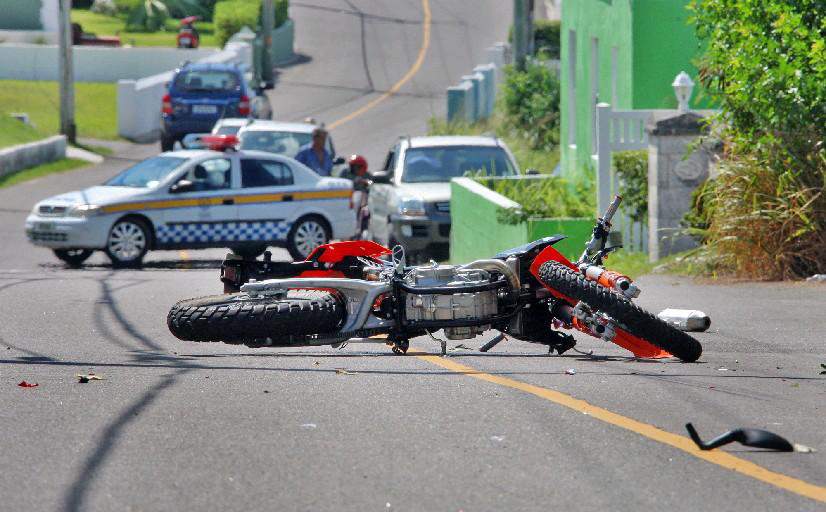It’s time to slam on the brakes, and take a long, hard look at ourselves.
Bermuda’s road safety record is an international embarrassment, with our death and injury rates topping most of the 35 member countries within the Organisation for Economic Co-operation and Development.
Over the past ten years, we have had 118 road deaths and more than 15,000 injuries on an island of little more than 60,000 — Bermuda truly is another world.
The Bermuda Tourism Authority may want to factor this inconvenient truth out of its marketing strategy.
It’s not just a flagrant disregard for the rules of the road that is holding us back on this tiny stretch of tarmac; in many cases the rules are either non-existent or easily swerved.
People do not drink and drive in most developed countries because the police are out in force with roadside breathalysing; speed junkies are stopped dead in their tracks using run-of-the-mill camera technology and enforcement methods that have been in place for years; and those learning to ride and drive are given the stringent and extensive training intended to give them a proper head start.
Why are we lagging so far behind after all these years?
For decades, administration after administration has paid lip service to an issue that is killing and crippling our people.
It has got to the point where we have a national health crisis on our hands and it must be treated as a matter of urgency.
Today The Royal Gazette is launching its six-month Drive for Change campaign to see an end to the carnage that is tearing lives apart.
Building on the success of the hard-hitting documentary and road safety campaign A Piece of the Rock, we aim to keep the momentum going and build the pressure on our lawmakers to effect change.
We know that the main causes of road-related death and injury are impaired driving, speeding and inadequate driver training.
As such, our main objectives are to push for roadside sobriety testing, effective speed-camera technology and a mandatory, graduated licensing programme to properly qualify our riders and drivers for the roads.
The new Progressive Labour Party government has a golden opportunity to ride this unprecedented wave of public will and drag us into line with the rest of the OECD. Transport minister Walter Roban has spoken out about his commitment to road safety and has gone as far as to promise implementing roadside sobriety testing by the end of the parliamentary year. Whether that would be non-selective, meaning a police officer can pull over every ten, 15, 20 vehicles — thereby weakening accusations of profiling — remains to be seen.
As for the speed cameras, upgrades are said to be in the works to advance the capabilities of the existing CCTV network, but there are significant issues surrounding enforcement, numberplate-recognition limitations and speed limits.
As for a graduated licensing programme, the Bermuda Road Safety Council presented the last government with a recommendation for a complete graduated programme accompanied by proposed legislation. The on-road training segment is already being taught as a privately funded pilot programme at the Berkeley Institute. It is ready for consideration by Roban, who has the power to have legislation enacted and to have the programme on the books. But there will be little point going through all that effort if the programme is not mandatory.
Bermuda is not one to sit quietly when political inaction is left to fester to the detriment of her people.
She has a proud history of standing up for what is right. There has been a lot to stand up for in recent years but none for a cause that could prevent large-scale death and crippling injury. A march to eliminate dangerous driving would be a march for life.
So we ask you to play your part towards the Drive for Change and instead of cursing at the third-laner who cut you off or the drunk driver who swerved across the centre line, join the movement for roads reform and let your politicians know what you want.
Drive for Change is here to equip you with the knowledge you need to make an informed decision and to hand you the tools to make it happen.
But first of all ask yourself the question: are you doing everything in your immediate power to ensure you are not a hazard to the road users around you?




